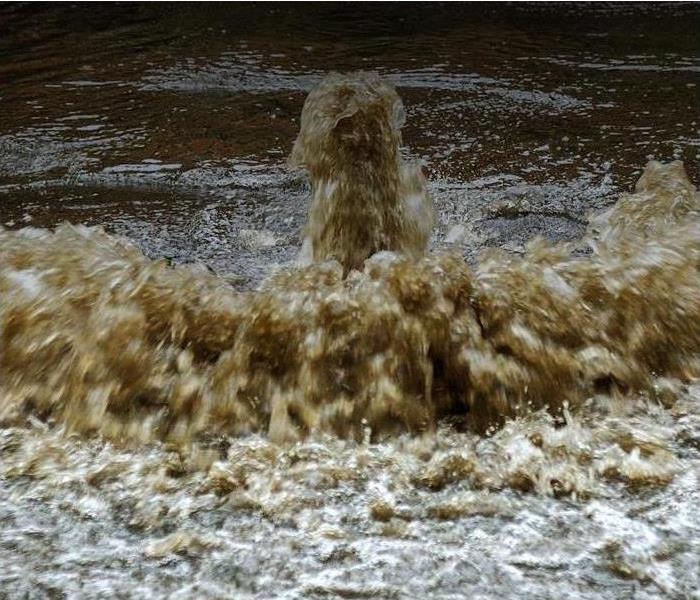Tips for Dealing With Sewage Damage
6/7/2019 (Permalink)
Tips For Dealing With Sewage Damage
A sewer backup must surely be among the least pleasant of messes to clean up. The foul odors and the potential for extensive property destruction are just the beginning of the problem. Sewer cleanup requires a lot of time and hard work. Before you get into it, however, spend time doing a bit of research to make sure you get the results you want.
Prevent Contamination From Spreading
- Respond to damage immediately
- Keep family and pets out of the affected area.
- Wear protective clothing and gear while in the area.
- Open windows or doors to provide ventilation, but don't run the air conditioning system.
Whether the backup is the result of trouble sewer line or the result of a flooded toilet in your home, take the same precautions to control damage. For example, before you do any sewer cleanup work, turn off the electrical power to the area.
Tips for Sewage Backup Response
There are several other tips you should use while responding to the sewer backup.
- Don't use the water in your home until you've had a safety inspection. This means turning off the running water for showers and toilets as well as in your kitchen.
- Remove uncontaminated belongings and furnishings from the area.
- Alert municipal authorities to the backup. You may also need to contact the health department, depending on the extent of the situation.
- Call water damage restoration technicians. These technicians have the training and the tools to thoroughly clean and disinfect your home.
- Contact your insurance company and notify them of the spill in your home. Take pictures of the damage for insurance purposes before belongings are cleaned or repaired.
The best option when dealing with sewer cleanup is to let professionals handle the work. After taking immediate action to prevent the spread of damage, call SERVPRO of Champaign/Urbana anytime at (217) 355-0077.
(SB)





 24/7 Emergency Service
24/7 Emergency Service
